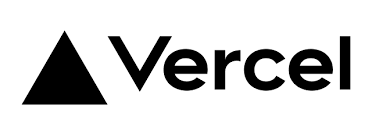
Vercel: the Temu of web-hosting
Think of buying the cheapest Toyota you can find, slapping on glossy red paint, changing the rims, and adding some fake exhausts — then charging Ferrari prices for it. That’s basically what Vercel did to AWS.
If you’re into web development, you’ve probably heard of Vercel — a popular platform for hosting web apps built with Next.js, SvelteKit, Vue, and more. It’s incredibly convenient for getting started, but once your project grows, the bills can get seriously steep. Honestly, it’s just a heavily over-glazed AWS wrapper with a big markup and a flashy UI designed to make you feel good.
-
Overpriced as hell
Vercel looks affordable at first — their hobby plan is generous, and that’s fine for small projects. I even used it myself for a while because of the ease and initial cost. But beware: as soon as you cross their free thresholds, your bill won’t just increase a little — it skyrockets, like you’re paying for a million extra users when you only went slightly over. -
The flashy UI doesn’t really help
All those fancy features? They don’t mean much if your app isn’t performing well anyway. And if your app is bad, you’re probably fine on the free tier. Honestly, what good is $20/month analytics that just show you hundreds of crawling bots? -
It’s just a hosted abstraction over AWS (with markup)
Under the hood, Vercel is built on top of AWS infrastructure — like Lambda, S3, and CloudFront — but it adds a layer of polish and UX, then charges a significant premium. While the developer experience is clean, you’re still bound by the same cold starts, scaling quirks, and limitations of AWS functions. You could replicate most of it yourself using AWS or other platforms like Fly.io or Cloudflare, but without the price shock. Vercel’s value comes from convenience, not capability — and that convenience comes at a steep cost. -
Next.js and Vercel: a package deal
Vercel’s core features are tightly coupled with Next.js. So unless you’re using Next.js, you’re basically paying Ferrari prices for a Toyota. If you are using Next.js, fine — but for anything else, consider cheaper generic hosting. -
Cloudflare Workers & Pages: a smarter choice
If you want a modern, scalable, truly edge-first platform — without Vercel’s headaches — check out Cloudflare Workers and Pages:
- Much cheaper and more predictable pricing
- Runs on Cloudflare’s massive global edge network with ultra-low latency
- No vendor lock-in — language-agnostic and framework-flexible
- More control with direct edge access, durable objects, and storage options
- Open ecosystem, no forced coupling or bloat
Cloudflare offers a leaner, faster, and more affordable alternative that actually gives you freedom.